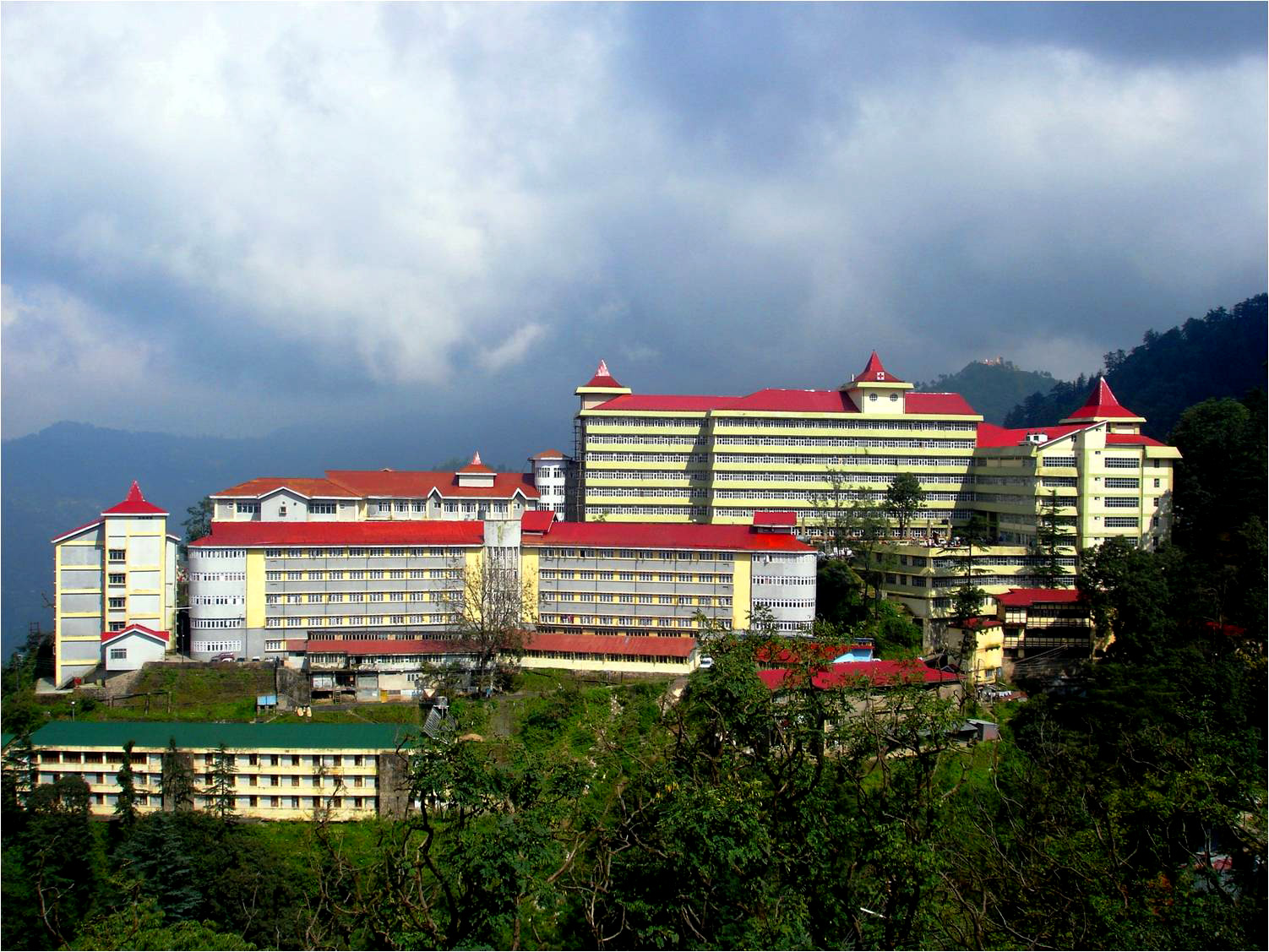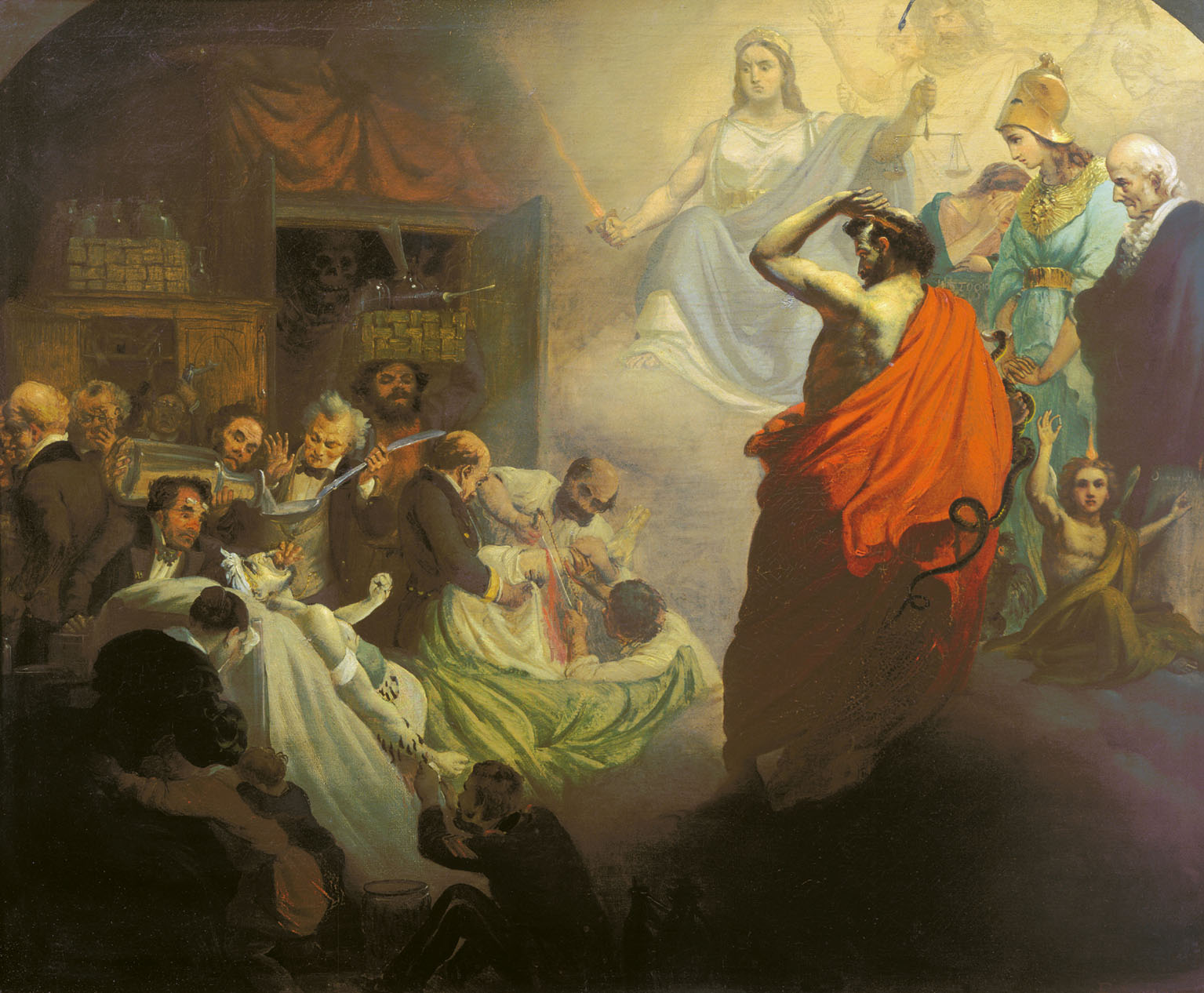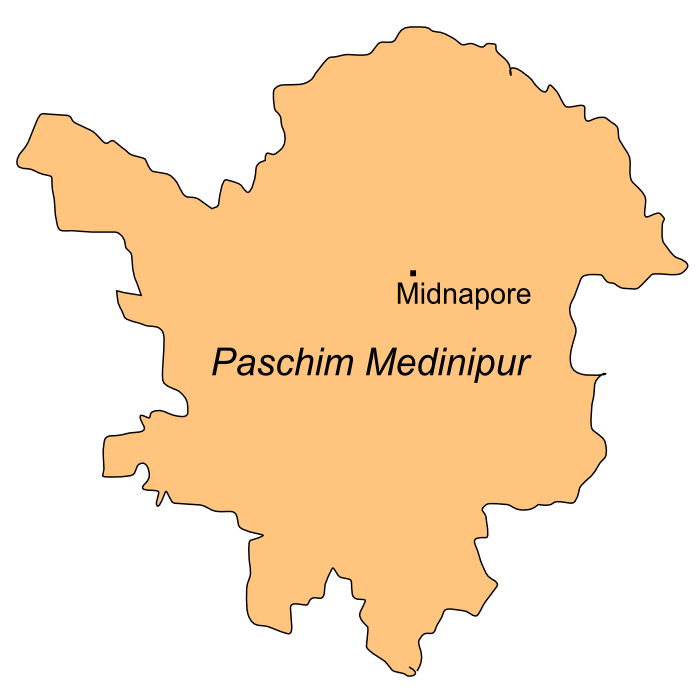|
Midnapore Homoeopathic Medical College And Hospital
Midnapore Homoeopathic Medical College and Hospital (MHMC&H) is a homeopathic medical college and hospital in Midnapore, West Bengal, India. This college was established on 3 December 1945. It is one of the oldest running homeopathic institutions in India. It offers the Bachelor of Homeopathic Medicine and Surgery (BHMS) degree course. The college is recognized by the Central Council of Homoeopathy (CCH), Ministry of Ayush and affiliated with the West Bengal University of Health Sciences. See also *Midnapore Medical College and Hospital *List of hospitals in India This is a list of notable hospitals in India. Various medical colleges and medicine related educational institutes also serve as hospitals. For those, refer List of medical colleges in India. For a list of psychiatric hospitals and nursing home ... References External linksOfficial Website 1945 establishments in India Universities and colleges established in 1945 Homeopathic hospitals Hospitals establishe ... [...More Info...] [...Related Items...] OR: [Wikipedia] [Google] [Baidu] |
Homoeopathic
Homeopathy or homoeopathy is a pseudoscientific system of alternative medicine. It was conceived in 1796 by the German physician Samuel Hahnemann. Its practitioners, called homeopaths, believe that a substance that causes symptoms of a disease in healthy people can cure similar symptoms in sick people; this doctrine is called '' similia similibus curentur'', or "like cures like". Homeopathic preparations are termed ''remedies'' and are made using homeopathic dilution. In this process, the selected substance is repeatedly diluted until the final product is chemically indistinguishable from the diluent. Often not even a single molecule of the original substance can be expected to remain in the product. Between each dilution homeopaths may hit and/or shake the product, claiming this makes the diluent remember the original substance after its removal. Practitioners claim that such preparations, upon oral intake, can treat or cure disease. All relevant scientific knowledge about ... [...More Info...] [...Related Items...] OR: [Wikipedia] [Google] [Baidu] |
List Of Hospitals In India
This is a list of notable hospitals in India. Various medical colleges and medicine related educational institutes also serve as hospitals. For those, refer List of medical colleges in India. For a list of psychiatric hospitals and nursing homes in India refer List of psychiatric hospitals in India. Chain hospitals Various chain or network hospitals operate in various cities of India. These are: * Apollo Hospitals * Asian Institute of Medical Sciences * Aster DM Healthcare * Billroth Hospitals * Care Hospitals * Command Hospital * Council of Christian Hospitals * Dr. Agarwal's Eye Hospital * Dr. Mohan's Diabetes Specialities Centre * Fortis Healthcare * Global Hospitals Group * Health Care Global * Hinduja Healthcare Limited * Krishna Institute of Medical Sciences * LifeSpring Hospitals * Max Healthcare * Manipal Hospitals * Medica Hospitals * Metro Group of Hospitals * Narayana Health * Paras Healthcare * Park Group of Hospitals * Regional Cancer Centre * Sahyadri ... [...More Info...] [...Related Items...] OR: [Wikipedia] [Google] [Baidu] |
Universities And Colleges In Paschim Medinipur District
A university () is an institution of higher (or tertiary) education and research which awards academic degrees in several academic disciplines. Universities typically offer both undergraduate and postgraduate programs. In the United States, the designation is reserved for colleges that have a graduate school. The word ''university'' is derived from the Latin ''universitas magistrorum et scholarium'', which roughly means "community of teachers and scholars". The first universities were created in Europe by Catholic Church monks. The University of Bologna (''Università di Bologna''), founded in 1088, is the first university in the sense of: *Being a high degree-awarding institute. *Having independence from the ecclesiastic schools, although conducted by both clergy and non-clergy. *Using the word ''universitas'' (which was coined at its foundation). *Issuing secular and non-secular degrees: grammar, rhetoric, logic, theology, canon law, notarial law.Hunt Janin: "The university ... [...More Info...] [...Related Items...] OR: [Wikipedia] [Google] [Baidu] |
Hospitals In West Bengal
A hospital is a health care institution providing patient treatment with specialized health science and auxiliary healthcare staff and medical equipment. The best-known type of hospital is the general hospital, which typically has an emergency department to treat urgent health problems ranging from fire and accident victims to a sudden illness. A district hospital typically is the major health care facility in its region, with many beds for intensive care and additional beds for patients who need long-term care. Specialized hospitals include trauma centers, rehabilitation hospitals, children's hospitals, seniors' (geriatric) hospitals, and hospitals for dealing with specific medical needs such as psychiatric treatment (see psychiatric hospital) and certain disease categories. Specialized hospitals can help reduce health care costs compared to general hospitals. Hospitals are classified as general, specialty, or government depending on the sources of income received. A teaching ... [...More Info...] [...Related Items...] OR: [Wikipedia] [Google] [Baidu] |
Hospitals Established In 1945
A hospital is a health care institution providing patient treatment with specialized health science and auxiliary healthcare staff and medical equipment. The best-known type of hospital is the general hospital, which typically has an emergency department to treat urgent health problems ranging from fire and accident victims to a sudden illness. A district hospital typically is the major health care facility in its region, with many beds for intensive care and additional beds for patients who need long-term care. Specialized hospitals include trauma centers, rehabilitation hospitals, children's hospitals, seniors' (geriatric) hospitals, and hospitals for dealing with specific medical needs such as psychiatric treatment (see psychiatric hospital) and certain disease categories. Specialized hospitals can help reduce health care costs compared to general hospitals. Hospitals are classified as general, specialty, or government depending on the sources of income received. A teaching ... [...More Info...] [...Related Items...] OR: [Wikipedia] [Google] [Baidu] |
Homeopathic Hospitals
Homeopathy or homoeopathy is a pseudoscientific system of alternative medicine. It was conceived in 1796 by the German physician Samuel Hahnemann. Its practitioners, called homeopaths, believe that a substance that causes symptoms of a disease in healthy people can cure similar symptoms in sick people; this doctrine is called '' similia similibus curentur'', or "like cures like". Homeopathic preparations are termed ''remedies'' and are made using homeopathic dilution. In this process, the selected substance is repeatedly diluted until the final product is chemically indistinguishable from the diluent. Often not even a single molecule of the original substance can be expected to remain in the product. Between each dilution homeopaths may hit and/or shake the product, claiming this makes the diluent remember the original substance after its removal. Practitioners claim that such preparations, upon oral intake, can treat or cure disease. All relevant scientific knowledge abou ... [...More Info...] [...Related Items...] OR: [Wikipedia] [Google] [Baidu] |
Universities And Colleges Established In 1945
A university () is an institution of higher (or tertiary) education and research which awards academic degrees in several academic disciplines. ''University'' is derived from the Latin phrase ''universitas magistrorum et scholarium'', which roughly means "community of teachers and scholars". Universities typically offer both undergraduate and postgraduate programs. The first universities in Europe were established by Catholic Church monks. The University of Bologna (), Italy, which was founded in 1088, is the first university in the sense of: *being a high degree-awarding institute. *using the word ''universitas'' (which was coined at its foundation). *having independence from the ecclesiastic schools and issuing secular as well as non-secular degrees (with teaching conducted by both clergy and non-clergy): grammar, rhetoric, logic, theology, canon law, notarial law.Hunt Janin: "The university in medieval life, 1179–1499", McFarland, 2008, , p. 55f.de Ridder-Symoens, Hilde''A ... [...More Info...] [...Related Items...] OR: [Wikipedia] [Google] [Baidu] |
1945 Establishments In India
1945 marked the end of World War II and the fall of Nazi Germany and the Empire of Japan. It is also the only year in which nuclear weapons have been used in combat. Events Below, the events of World War II have the "WWII" prefix. January * January 1 – WWII: ** Germany begins Operation Bodenplatte, an attempt by the ''Luftwaffe'' to cripple Allied air forces in the Low Countries. ** Chenogne massacre: German prisoners are allegedly killed by American forces near the village of Chenogne, Belgium. * January 6 – WWII: A German offensive recaptures Esztergom, Hungary from the Russians. * January 12 – WWII: The Soviet Union begins the Vistula–Oder Offensive in Eastern Europe, against the German Army. * January 13 – WWII: The Soviet Union begins the East Prussian Offensive, to eliminate German forces in East Prussia. * January 16 – WWII: Adolf Hitler takes residence in the ''Führerbunker'' in Berlin. * January 17 ** WWII: The Soviet Union occupies Warsaw, Poland ... [...More Info...] [...Related Items...] OR: [Wikipedia] [Google] [Baidu] |
Midnapore Medical College And Hospital
Midnapore Medical College and Hospital is a full-fledged tertiary referral Government Medical college. It was established in the year 2004. The college imparts the degree Bachelor of Medicine and Surgery (MBBS) as well as specialised and post-doctoral degrees. Nursing and para-medical courses are also offered. The college is affiliated to West Bengal University of Health Sciences and is recognised by the National Medical Commission. The hospital associated with the college is one of the largest hospitals in the Midnapore district. The selection to the college is done on the basis of merit through National Eligibility and Entrance Test The National Eligibility cum Entrance Test (Undergraduate) or NEET (UG), formerly the All India Pre-Medical Test (AIPMT), is an all India pre-medical entrance test for students who wish to pursue undergraduate medical ( MBBS), dental ( BDS .... Yearly undergraduate student intake is 200 from the year 2019. History Midnapore Medical Colle ... [...More Info...] [...Related Items...] OR: [Wikipedia] [Google] [Baidu] |
Midnapore, Paschim Medinipur, West Bengal
Medinipur or Midnapore (Pron: med̪iːniːpur) is a city known for its history in the Indian state of West Bengal. It is the headquarters of the West Medinipur district. It is situated on the banks of the Kangsabati River (variously known as ''Kasai'' and ''Cossye''). The Urban Agglomeration of Midnapore consists of the city proper, Mohanpur, Keranichoti and Khayerullachak. Etymology The English name Midnapore is a corruption of the original name of the town which was Madanipur. It was named after Haji Mustafa Madani, a 17th-century Bengali Muslim scholar who was gifted tax-free land in the present area in addition to an estate there which included a mosque. Madani is the ancestor of Mohammad Abu Bakr Siddique of Furfura Sharif. According to Sri Hari Sadhan Das, the city got its name from Medinikar, the founder of the city in 1238, who was the son of Prankara, the feudal king of Gondichadesh (now Odisha). He was also the writer of "Medinikosh". Hara Prasad Shastri thinks th ... [...More Info...] [...Related Items...] OR: [Wikipedia] [Google] [Baidu] |
Central Council Of Homoeopathy
The National Commission for Homoeopathy (formerly known as Central Council of Homoeopathy) is a statutory body under the Ministry of AYUSH, Government of India. Central Council of Homoeopathy was set up by the Government of India in 1973. The National Commission for Homoeopathy was constituted on 5 July 2021 and on the same date, the Homoeopathy Central Council Act, 1973 was repealed and the Central Council of Homoeopathy was superseded. It is one of the Professional Councils of University Grants Commission (UGC), formed to monitor higher education in India. Any institution desiring to grant a qualification in homeopathy is required to apply to the Council, which prescribes course curriculum and maintains central registers of homeopaths. History The institution set up under the '' Central Council of Homeopathy Act 1973, (Act 59)''. Any university or similar institution in India offering either a degree or a diploma in homeopathy can do so only if it is approved by CCH, apart fr ... [...More Info...] [...Related Items...] OR: [Wikipedia] [Google] [Baidu] |
Homeopathic
Homeopathy or homoeopathy is a pseudoscientific system of alternative medicine. It was conceived in 1796 by the German physician Samuel Hahnemann. Its practitioners, called homeopaths, believe that a substance that causes symptoms of a disease in healthy people can cure similar symptoms in sick people; this doctrine is called '' similia similibus curentur'', or "like cures like". Homeopathic preparations are termed ''remedies'' and are made using homeopathic dilution. In this process, the selected substance is repeatedly diluted until the final product is chemically indistinguishable from the diluent. Often not even a single molecule of the original substance can be expected to remain in the product. Between each dilution homeopaths may hit and/or shake the product, claiming this makes the diluent remember the original substance after its removal. Practitioners claim that such preparations, upon oral intake, can treat or cure disease. All relevant scientific knowledge about ... [...More Info...] [...Related Items...] OR: [Wikipedia] [Google] [Baidu] |





